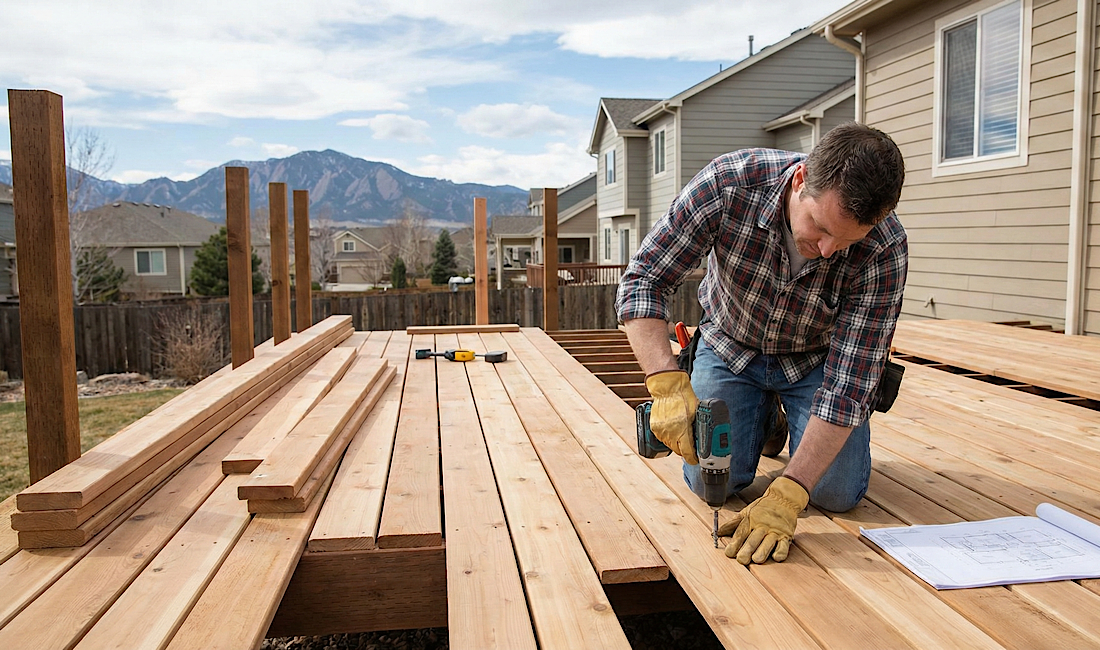Eco-Friendly Decking Options
In today’s environmentally conscious world, more homeowners are looking for sustainable materials and practices to build eco-friendly decks. Choosing the right decking materials and construction methods not only helps reduce your environmental footprint but also ensures a long-lasting, beautiful outdoor space. This article explores various eco-friendly decking options and sustainable practices to consider for your next deck project.
Sustainable Decking Materials
When it comes to building an eco-friendly deck, the choice of materials plays a crucial role. Here are some sustainable decking materials that are both durable and environmentally friendly.
Composite Decking
Composite decking is made from a blend of recycled wood fibers and plastic, offering a sustainable alternative to traditional wood. This material is highly durable, resistant to rot and insect damage, and requires minimal maintenance. Composite decking often contains high percentages of recycled content, reducing the need for virgin materials and diverting waste from landfills. Its durability means fewer replacements and repairs over time, which minimizes waste and resource use.
Bamboo Decking
Bamboo is a rapidly renewable resource, making it an excellent choice for eco-friendly decking. Bamboo decking is known for its strength and durability, and it has a similar appearance to traditional hardwoods. Bamboo grows much faster than trees, reaching maturity in just 3-5 years compared to 20-30 years for hardwoods. Harvesting bamboo doesn’t require replanting, as the plant regenerates from its own root system.
Reclaimed Wood
Using reclaimed wood is an excellent way to create a rustic and sustainable deck. This wood is sourced from old barns, factories, and other structures, giving new life to materials that would otherwise go to waste. By repurposing old wood, you’re helping to reduce deforestation and landfill waste. Reclaimed wood offers a unique, weathered look that adds character to your deck.
Thermally Modified Wood
Thermally modified wood is treated with heat to enhance its durability and resistance to moisture and pests. This process uses no chemicals, making it a safe and sustainable option for decking. The thermal modification process is environmentally friendly, using only heat and steam. This treatment extends the wood's lifespan, reducing the need for frequent replacements.
Sustainable Construction Practices
In addition to choosing eco-friendly materials, adopting sustainable construction practices can further reduce the environmental impact of your deck project.
Sourcing materials locally reduces transportation emissions and supports the local economy. Look for local suppliers of sustainable decking materials to minimize your deck’s carbon footprint.
Using low-VOC (volatile organic compounds) finishes and sealants reduces the release of harmful chemicals into the air, promoting better indoor and outdoor air quality.
Designing your deck efficiently can reduce material waste and energy use. Optimize space by designing your deck to maximize usable space and minimize unnecessary materials. Use standard material sizes to reduce waste and optimize material usage.
Choosing eco-friendly fasteners, such as stainless steel or coated screws, ensures durability and reduces the need for frequent replacements.
Benefits of Eco-Friendly Decking
Opting for eco-friendly decking offers several benefits beyond environmental sustainability.
Low Maintenance
Many sustainable decking materials, like composite decking and thermally modified wood, require minimal maintenance. This means less time, effort, and resources spent on upkeep. Durable materials resist rot, insects, and weathering, reducing the need for repairs.
Cost Savings
While the initial cost of some eco-friendly materials may be higher, their longevity and low maintenance requirements can lead to cost savings over time. Durable materials reduce the frequency of replacements and minimal upkeep saves on maintenance expenses.
Enhanced Aesthetic Appeal
Sustainable materials like reclaimed wood and bamboo offer unique aesthetic qualities that enhance the beauty of your deck. Reclaimed wood provides a one-of-a-kind appearance, and bamboo and other sustainable materials offer a natural, elegant look.
Making the Right Choice
When selecting eco-friendly decking options, consider the following factors to ensure you make the best choice for your needs and the environment: choose materials that are well-suited to your local climate to ensure longevity and performance. Balance initial costs with long-term savings from reduced maintenance and replacements. Select materials that match your desired aesthetic and complement your home’s design.
By opting for sustainable materials and adopting eco-friendly construction practices, you can create a beautiful, durable, and environmentally responsible deck. For homeowners in Denver looking to build eco-friendly decks, Centennial Custom Decks offers a range of sustainable options and expert construction services. Contact us today to explore our eco-friendly decking solutions and start planning your green outdoor living space.



